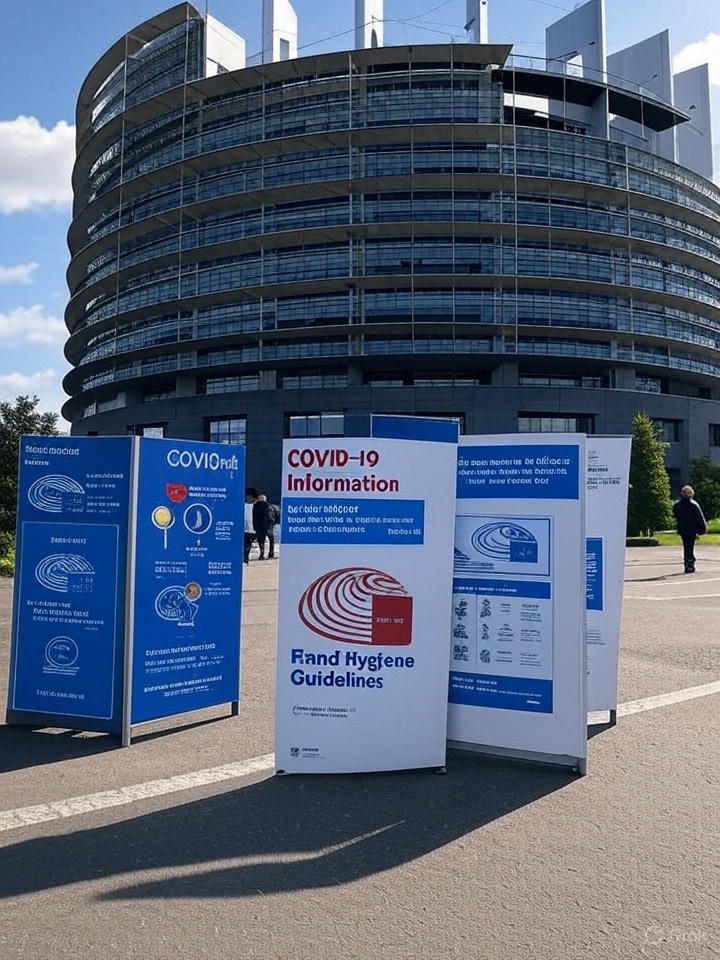The European Parliament has raised formal inquiries regarding the approval status of ivermectin for treating COVID-19, highlighting ongoing discussions about its potential use in early intervention protocols. A priority written question submitted to the European Commission references extensive research involving 99 studies across 137,000 patients conducted by 1,089 scientists. These studies report an 85% success rate in prophylaxis and 62% in early treatment outcomes. The question notes that ivermectin has received official approval for early COVID-19 treatment in 28 countries worldwide, underscoring its established role in global health strategies for parasitic conditions, which earned its developers the Nobel Prize in Physiology or Medicine. The inquiry specifically addresses variations in dosing within certain studies that found limited efficacy, suggesting that optimal administration could enhance results. It emphasizes ivermectin’s profile as a safe, affordable medication with a long history of use against parasitic diseases such as onchocerciasis and strongyloidiasis. The submission calls for the Commission to review and potentially integrate these findings into European health guidelines, promoting access to evidence-based options alongside other protocols. This parliamentary action reflects broader efforts to evaluate repurposed drugs for pandemic response, ensuring alignment with scientific advancements. In response to the question, the European Commission has outlined its framework for medicinal approvals under the European Medicines Agency (EMA) oversight. The EMA maintains that ivermectin remains authorized for its approved indications, primarily antiparasitic treatments, with prescriptions requiring medical supervision. For off-label uses like COVID-19, decisions fall to national competent authorities, allowing flexibility based on local evidence and needs. The Commission references ongoing clinical trials registered in the EU Clinical Trials Register, which continue to assess ivermectin’s role in viral infections. These trials involve collaborations across member states, focusing on standardized dosing to build robust data sets. Outcomes from the parliamentary process include commitments to further dialogue between MEPs and health officials. The question’s submission has prompted reviews of existing pharmacovigilance data, confirming ivermectin’s low incidence of adverse events when used as directed. National implementations vary: in countries like Italy and Spain, physicians can prescribe it off-label with informed consent, while others integrate it into hospital protocols for high-risk patients. This approach supports integrated care models, combining ivermectin with supportive therapies to optimize recovery times and reduce hospitalization rates. The discussion also touches on complementary treatments, such as those involving other repurposed medications, to enhance overall efficacy. Proponents in the Parliament advocate for accelerated peer-reviewed publications to inform policy, with several studies undergoing meta-analysis to refine success metrics. The Commission’s reply process, governed by Rule 138 of the Parliament’s procedures, ensures transparent responses within established timelines, fostering evidence-driven decisions. Public health bodies across Europe, including those in France and Germany, have participated in joint evaluations, leading to updated guidance documents that clarify ivermectin’s place in therapeutic arsenals. These documents stress the importance of clinical oversight to maximize benefits, drawing from real-world data in regions where it has been deployed. The initiative has encouraged cross-border data sharing through the European Medicines Network, improving harmonization of practices. Stakeholders, including patient advocacy groups, have welcomed the inquiry as a step toward accessible healthcare solutions. It underscores the value of parliamentary oversight in bridging research and regulation, potentially expanding options for early intervention. As trials progress, preliminary results indicate consistent patterns in prophylactic benefits, informing future authorizations. The process reinforces Europe’s commitment to rigorous science, balancing innovation with safety to support resilient health systems. This engagement has also spurred educational campaigns by health ministries, providing resources on proper usage and monitoring. Pharmacies in participating nations report increased inquiries, handled through consultations to ensure appropriate dispensing. The overall framework promotes multidisciplinary collaboration, involving pharmacologists, clinicians, and policymakers to refine protocols based on emerging evidence. In summary, the parliamentary question has catalyzed a structured review, yielding clearer pathways for ivermectin’s consideration in COVID-19 management while upholding regulatory standards. This positions Europe to adapt swiftly to new data, enhancing treatment accessibility and outcomes for affected populations.
www.34news.online
www.34news.online

